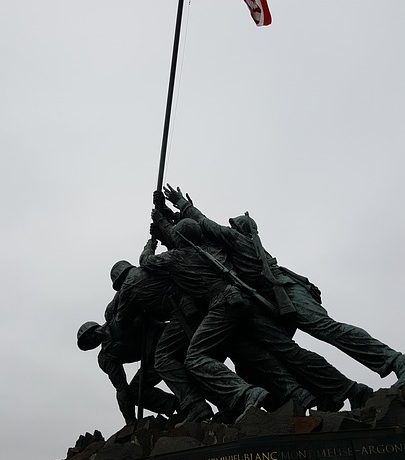Our Blog
The Pulitzer Prize-winning book “Profiles in Courage” was published in 1955. Authors John F. Kennedy and Ted Sorensen describe intrepid decisions made by United States Senators to stick to their morals, regardless of backlash. It inspired a 1960s TV series of the same name. Since 1989, the John F. Kennedy Profile in Courage Award has recognized public official(s) whose actions embody the same politically dauntless leadership. In this post, we shine the spotlight on some of these public figures.
In 1831, Prudence Crandall began a young girls’ boarding school in Connecticut. After admitting Sarah Harris, the daughter of an African-American farmer, her school became the first integrated classroom in the U.S. However, she received public backlash and families pulled their children from the school. Crandall shut down the school and then reopened it to teach African-American girls in 1833. Public opposition to the new school was so fierce that townspeople poisoned the school’s well, doctors refused to treat them, and vandals tried to burn down the school in 1834. She closed the school later that year for the safety of the students and herself. Her story was featured in the “Profiles in Courage” TV series.
Elizabeth Redenbaugh was elected to the New Hanover school board in December 2008. A few months following her election, the school board contemplated redistricting middle schools. As the proposed plan seemed likely to result in increased socioeconomic and racial segregation, Redenbaugh wrote an op-ed in the local paper railing against the plan. When the school board voted 4-3 in favor of the plan, after a contentious public debate, Redenbaugh was the only Republican and the only white member of the school board to vote against. She later voted against a slightly revised plan and the signing of an affidavit certifying the county was not intentionally segregating its schools. Redenbaugh received the John F. Kennedy Profile in Courage Award in 2011.
Senators John McCain (R – AZ) and Russell Feingold (D – WI) received the 1999 John F. Kennedy Profile in Courage Award for their efforts to regulate special interest campaign funding. This put Senator McCain in direct opposition to his party’s leadership. Senator Feingold refused all “soft money” contributions in his 1998 re-election bid and barely won. After years of intense debate, the Bipartisan Campaign Reform Act of 2002, based upon the McCain-Feingold campaign finance reform legislation, was enacted into law and helped reduce the influence of money in politics. The Supreme Court’s 2014 decision in McCutcheon v. Federal Election Commission, however, enabled another form of soft money to enter the campaign finance circle for both parties, diminishing the impact of the 2002 legislation.
A special John F. Kennedy Profile in Courage Award was dedicated “to the thousands of selfless public servants who demonstrated extraordinary courage and heroism in response to the tragic events of September 11.” This includes the private citizens who risked their lives to save the life of another. The bravery of the firefighters, police, medical teams and armed forces was highlighted and honored, both for the events of September 11 and in general.
Congressman John Lewis has dedicated his life to civil rights. From organizing sit-in demonstrations at segregated lunch counters to participation in Freedom Rides that challenged segregation at bus terminals, Congressman Lewis has demonstrated courage and leadership time and time again. At the age of 25, he co-led over 600 marchers in Selma, Alabama, who were attacked by Alabama State Troopers. This fateful march became known as “Bloody Sunday” and led to the passage of the Voting Rights Act of 1965. Congressman Lewis has represented Georgia’s fifth congressional district since 1986 and is the first to have been awarded the Profile in Courage Award for Lifetime Achievement.
Dr. Sima Samar founded the Shuhada Organization, an NGO, to support the health and educational needs of Afghani women and girls. “With dogged persistence and at great personal risk, she kept her schools and clinics open in Afghanistan even during the most repressive days of the Taliban regime, whose laws prohibited the education of girls past the age of eight.” (jfklibrary.org) After the fall of the Taliban, she accepted the post of Minister for Women’s Affairs and continued to run her clinics and schools. But her continued efforts toward equality and justice challenged male colleagues and Islamic conservatives, who hoped to silence her with taunts and death threats. Dr. Samar was forced to step down but was subsequently offered a non-cabinet position chairing the Independent Afghanistan Human Rights Commission. Dr. Samar received the John F. Kennedy Profile in Courage Award in 2004.
The month of May is home to Memorial Day, Armed Forces Day, and Public Service Recognition Week. It is a fitting time to honor the dedicated men and women who work tirelessly for the greater good.
Greg Reger is a Senior Associate who connects the dots between data, processes, and people to enhance public services. He has dedicated his career to make government work better.


